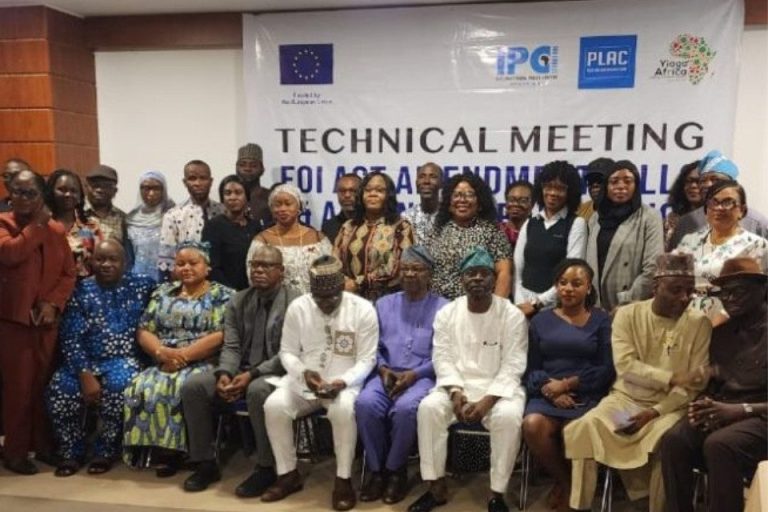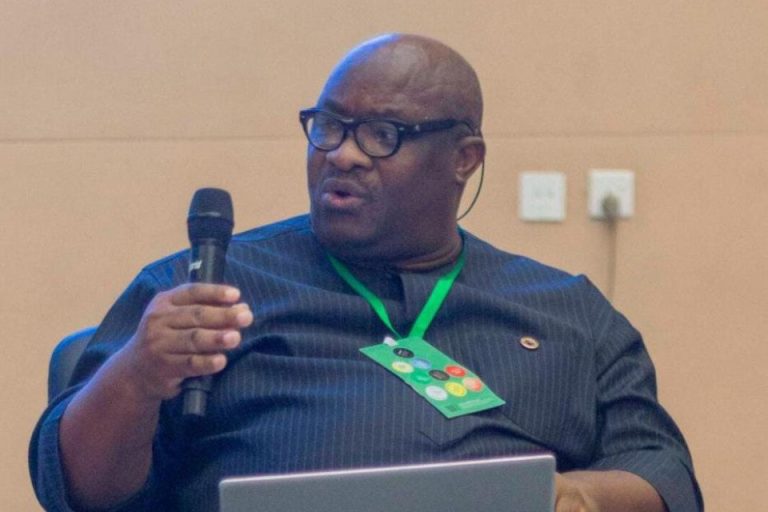Stakeholders have urged public institutions to make specific allocations in their annual budget proposals and provide necessary funds for implementing the Freedom of Information (FOI) Act, 2011, in order to improve compliance with their duties and obligations under the Law. This includes funding regular training and capacity-building programmes for officials, particularly FOI Desk Officers; digitising records; and preparing, publishing, submitting, and disseminating annual FOI reports to the Attorney-General of the Federation and the public, as required by the Act.
This, and other recommendations, were made at the end of a two-day stakeholders’ technical meeting on the proposed Freedom of Information (FOI) Act Amendment Bill, aimed at addressing mechanisms for enhanced reporting and compliance standards, held in Abuja on July 28 and 29, 2025.
Participants at the event included various stakeholder groups, such as the FOI Unit of the Federal Ministry of Justice and the Office of the Attorney-General of the Federation, the National Assembly, the Nigerian Law Reform Commission, civil society organisations, media professional bodies, media organisations, the legal profession, academic institutions, and other experts.
The technical meeting, which was organised by the International Press Centre (IPC), in collaboration with the Policy and Legal Advocacy Centre (PLAC) and YIAGA Africa, with the support of the European Union, aimed to review the FOI Amendment Bill and create a Position Paper summarising key stakeholders’ input from sectors like media, law, civil society, academia, and government. The objective was to support the effective implementation of the FOI Act to promote transparency in elections and governance.
At the opening ceremony, IPC’s Executive Director, Mr Lanre Arogundade, welcomed participants and set the tone for discussions. Messages of support followed from Dr Akin Akingbulu, Executive Director, Centre for Media and Society (CEMESO), Ms Nkiru Uzodi, Programme Manager, (PLAC), and Mr Godwin Garuba, Head of the FOI Unit at the Federal Ministry of Justice, who represented the Attorney General of the Federation.
The meeting began with an overview of the proposed FOI Amendment Bills, with Mr Edetaen Ojo, Executive Director of Media Rights Agenda (MRA), highlighting the existing gaps in the Act and suggesting possible reforms to enhance enforcement and compliance. Participants then worked in breakout groups to examine the FOI Act section by section, identifying provisions for possible amendment. Their recommendations were later presented in plenary and consolidated into a position paper by an expert committee.
Stakeholders observed that while the FOI Act provides a framework for public access to information, its implementation over the past 14 years has been hindered by poor compliance from public institutions and limited enforcement of sanctions. They noted that although wrongful denial of access to information is an offence under the Act, there have been no recorded cases of sanctions against defaulting institutions or officials. The lack of an independent oversight body, overreliance on criminal penalties, and the absence of administrative sanctions were identified as key weaknesses.
The meeting also welcomed the Supreme Court’s April 11, 2025, ruling, which affirmed that the FOI Act applies to all public institutions at the federal, state, and local government levels. However, participants warned that this expanded scope would stretch the Attorney General’s oversight capacity, making it critical to rethink compliance and enforcement strategies.
Among the recommendations adopted, stakeholders called for a comprehensive amendment bill that would address the Act’s principal gaps and harmonise with the two existing amendment bills in the National Assembly. They proposed reducing excessive dependence on the courts by establishing a framework for administrative sanctions and introducing clear, non-criminal enforcement procedures.
Significantly, the meeting urged all public institutions to create specific budget lines for FOI implementation in their annual budget proposals. This funding should support training and capacity-building for FOI Desk Officers, digitisation of records, and the preparation and dissemination of annual FOI reports. They also called for increased resources for the Federal Ministry of Justice and the Office of the Attorney General to enhance their capacity to monitor and ensure compliance with the Act.
To improve accountability, participants recommended that the Attorney General’s annual FOI reports to the National Assembly should identify non-compliant institutions by name, include recommendations for sanctioning persistent offenders, and provide a detailed analysis of trends in compliance and non-compliance.
The full communique adopted at the end of the technical meeting can be downloaded here.





